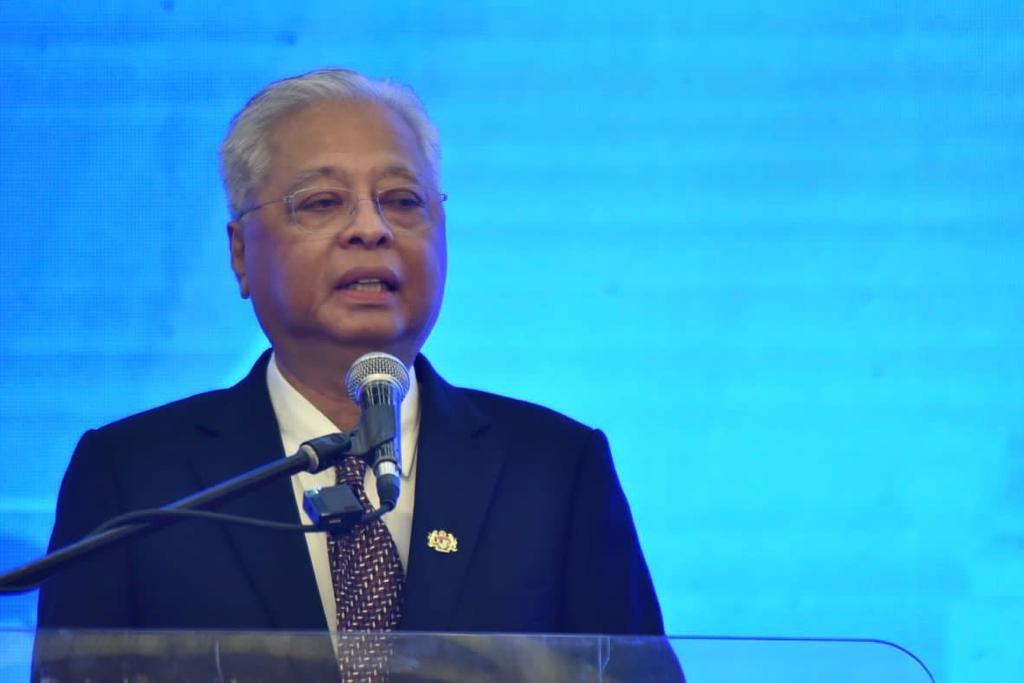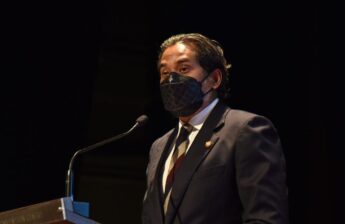KUALA LUMPUR, August 15 – Health care is not under the responsibility of the Ministry of Health (MOH) alone, but other parties including stakeholders, the public and private sectors, and civil society, Prime Minister Ismail Sabri Yaakob said today.
He acknowledged that Malaysia needs a comprehensive and thorough plan for health care reforms after two years of Covid-19, as the pandemic would not be the last to test the country’s health care system.
“The Health White Paper aims to comprehensively strengthen the country’s health care system, in line with the health needs of the people today, besides ensuring preparedness for challenges in the coming years,” Ismail Sabri said today in his officiating speech at the Health Policy Summit 2022 organised by MOH.
“This White Paper will not only focus on transforming health care service delivery, but also other aspects that impact the health of the Malaysian Family.
“At the same time, the effectiveness of the country’s health care system should not be managed solely by the Ministry of Health, but should also be the responsibility of all parties like stakeholders, the public and private sectors, and non-governmental organisations.”
The prime minister further expressed hopes that the Control of Tobacco Product and Smoking Bill 2022 would be tabled in the upcoming parliamentary meeting, after a review by a Dewan Rakyat special select committee on the proposed legislation that is chaired by Khairy.
In his keynote address, Khairy acknowledged the social determinants of health, saying that these must be addressed to ensure “health in all policies” of government.
“The White Paper will need to challenge every aspect of government to think of health outcomes if we are to succeed in keeping Malaysians healthy,” Khairy said.
“We need to tackle poverty as a negative determinant to good health and similarly provide quality education; equitable access to services for all; protect the environment, fight and reverse climate change; ensure food and nutritional security; plan for more green, safe, open and livable spaces in our cities and towns; clean our waterways and water supplies; and allow every person the potential to live a fulfilling and dignified life.”
Khairy plans to table a Health White Paper in Parliament by year end on wide-ranging health care reforms for a 15-year period – including health financing reform, among other issues – that he suggests to be supervised by a Health Reform Commission.
He cited George Orwell’s ‘Animal Farm’ in making his case to the PM for increased funding for public health care to reach 5 per cent of Malaysia’s gross domestic product (GDP).
“Prime Minister, I know that all ministries ask you for money, but some ministries are more important than others,” the health minister said.
“In Orwell’s ‘Animal Farm’, all animals are created equal, but some are more equal than others,” Khairy said, quoting from Orwell’s allegorical novel that satirises totalitarianism.
“The Ministry of Health is created more equal than others. Our core business is life and death.”
The health minister noted that Malaysia’s total public health spending was only 2.58 per cent of the GDP in 2020, just about half the minimum 5 per cent recommended by the World Health Organization (WHO).
Khairy pointed to the prime minister that cancer patients wait for three to four months in public hospitals for an MRI or CT scan, with the MRI waiting list at Kuala Lumpur Hospital being as long as three months.
“This is not even taking into account the conditions in our health clinics and village clinics.”
In his keynote earlier, Khairy expressed commitment to increasing Malaysia’s annual budgetary allocation for public health care to 5 per cent of the GDP over the next few years, with the raises to be ring-fenced in every subsequent budget. He did not mention social health insurance.
Khairy also proposed organisational change in Malaysia’s dual health care system by integrating public and private health care delivery that may see MOH devolving service delivery to focus on public health surveillance, policy development, research, regulation, monitoring, and evaluation.








